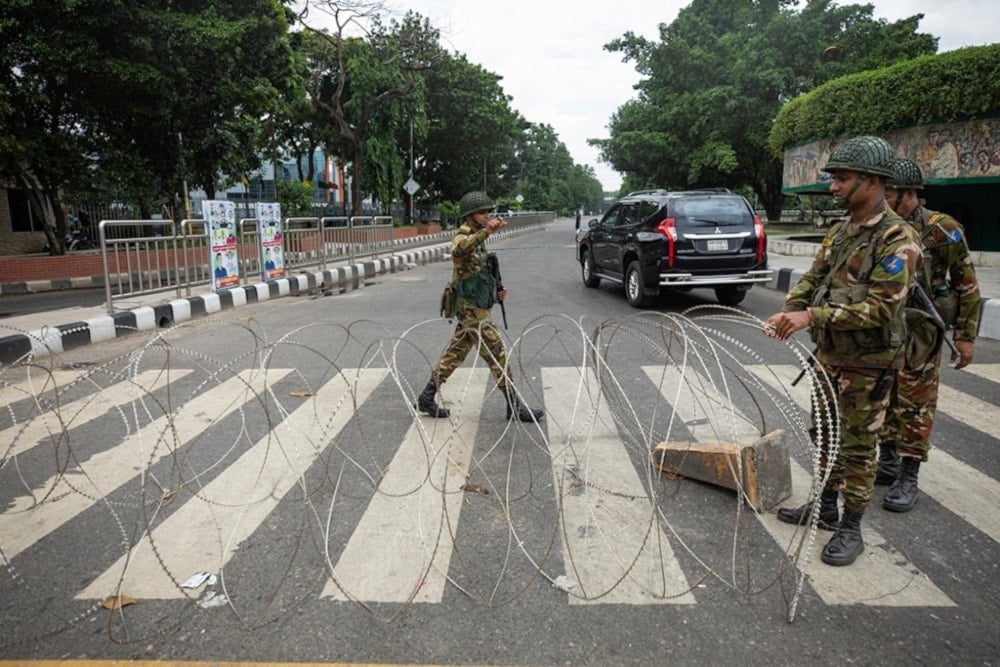Student protests hit Bangladesh economy with $10B loss: Chamber
The protests, which intensified last week following violent clashes at Dhaka University, are against the government's quota system for public jobs.
-

Bangladeshi military forces soldiers put up barbed wires on a main street in Dhaka, Bangladesh, on July 22, 2024. (AP)
Zaved Akhtar, president of the Foreign Investors Chamber of Commerce and Industry (FICCI), stated that the Bangladeshi economy has suffered a $10 billion loss due to student protests, curfews, and communication blackouts.
The protests, which intensified last week following violent clashes at Dhaka University, are against the government's quota system for public jobs. The demonstrators are calling for the abolition of the system that allocates 30% of government positions to the families of 1971 war veterans. They argue that the system discriminates and favors supporters of Prime Minister Sheikh Hasina, whose party spearheaded the independence movement.
The head of FICCI emphasized that Bangladesh must restore mobile connections and enhance its reputation as a business-friendly environment to attract and retain foreign investment. According to Akhtar, lifting the curfew is also essential for restoring the confidence of both local and international employees.
Akhtar, who is also the managing director of Unilever's Bangladeshi branch, urged the government to expedite the clearance of goods at ports and improve shipping processes to lower business costs.
Protests to resume until leaders freed, Bangladesh student group warns
On Sunday, a Bangladeshi student group vowed to resume protests, despite the deadly police crackdown, until student protest leaders are released from police detention.
Thousands of Bangladeshis have been protesting the reinstatement of the quota system, which was abolished in 2018 but was restored this year.
According to government data, with around 18 million young people in Bangladesh out of work, the reintroduction of the quota scheme has deeply frustrated graduates who are already facing a severe job crisis. Students argued that the system was unfair and called for most government jobs to be awarded based on merit.
Last week, at least 205 people were killed while protesting according to an AFP count and hospital records, while several others were detained, marking a significant stain in Prime Minister Sheikh Hasina's 15-year stay in office.
The Anti-Discrimination Student Movement said they would stop protesting, conditioning it with the release of their arrested chief Nahid Islam and other members and the withdrawal of all legal cases raised against them, Abdul Hannan Masud told reporters.
At the time, Masud gave his statement from an undisclosed location to avoid being discovered by authorities and called for the prosecution of government officials and police officers for the deaths of demonstrators, otherwise, the student movement "will be forced to launch tough protests."
Islam and two other senior movement leaders were forcibly discharged from the hospital by authorities, after being admitted for injuries sustained in a police crackdown on one of the protests. Home minister Asaduzzaman Khan claimed the leaders were taken into custody for their own safety and protection but did not disclose whether an official arrest was warranted.
The movement chief reportedly said he was in fear for his life.
AFP reported, citing the Anti-Discrimination Student Movement, that three additional members were detained. At least 9,000 protesters have been taken into custody since the start of the nationwide protests, Bangladeshi newspaper Prothom Alo revealed on July 19.

 3 Min Read
3 Min Read








